FILM REVIEW – A group of assassins board the super express from Tokyo to Kyoto almost simultaneously. They all seem to have different jobs and goals, but they soon realize their missions are connected. One of the most out of line is Katica (Brad Pitt), a professional assassin with self-esteem issues who only stepped in at the last minute to replace someone else, only to end up being the key figure in the whole farce. On the other hand, the film “Bullet Train” does not struggle with any self-esteem problems: it cheerfully imitates the style of Guy Ritchie’s action films, andBullet Train its order.
When the credits roll for Bullet Train, it’s almost a shock that Guy Ritchie isn’t listed as the director. While we might have been better off with a sort of postmodern version of our Quentin Tarantino films in this two-hour action flick, in which an assortment of assassins spout lengthy monologues and dialogues before trying to shoot, stab, poison and otherwise kill each other, Kill Train is much more like it resembles films such as Lock, Stock, and Two Smoking Barrels, or Snatch, which were, of course, postmodern copies of Quentin Tarantino’s works. Perhaps it was already an obvious omen that Brad Pitt, who was one of the heroes of Bluff more than 20 years ago, is the main character of the new action movie. Still, it strongly reminds me of “a certain movie” where some actors jumped into their one-dimensional character with giddy joy, only to pull out a cartoonish accent. But Killing Flight, unlike the early Ritchie films, is pretty empty and at least moderately entertaining, although it would be ideal if it were just the other way around.
An assassin named… Ladybug
Here, Pitt plays an assassin (a kind of both depressed and funny “Hitman”), who gets his new code name at the beginning of the film, thus Katica. Katica is just returning to the world of crime after a short hiatus, during which she tried to bring a semblance of peace to the surface with the help of a therapist. But his handler (primarily an offscreen figure voiced by Sandra Bullock) supposedly gives him an easy job of returning: all he has to do is take a briefcase off a bullet train from Tokyo to Kyoto. This seems simple enough, except that every time Ladybug tries to leave the train, fate makes her stay there. There’s a mysterious Mexican assassin bent on revenge called The Wolf (Benito A Martinez Ocasio); there’s The Prince (Joey King), who looks like a badass but is actually a little slutty English schoolgirl who’s basically a sociopath; a pair of twins called Tangerine and Lemon (Aaron Taylor-Johnson and Brian Tyree Henry); and so on and so on.
Bullet Train, whose screenplay is attributed to Zak Olkewicz, was based on the novel by Kōtarō Isaka. It is worth noting if only because it makes you wonder how faithful Olkewicz’s script is to the source or how much he forced other “inspirations” into it. The film’s constant jumping back and forth to the eponymous train to get a glimpse of the recent past of the various characters – whether near or far – as well as the relatively silent jumping back and forth in time, seem more like speeding up the story than the realization of original ideas. David Leitch directed “Bullet Train,” and while he’s best known for his work with fellow director/stuntman Chad Stahelski on the first “John Wick” movie, this film feels much more like Leitch’s directorial Deadpool 2 — in a good way. In both bad ways.
Cameos, cameos everywhere…
Being like “Deadpool 2” means several things for Bullet Train. On the less annoying side, this means several random cameos from very famous people, like the Bullock mentioned above. (You may remember that Pitt made a surprise cameo in “Deadpool 2”, so – without SPOILERS – this fact is worth considering in terms of what cameos we can expect here…) Unfortunately, this also means that in The Killer a good part of the flight’s action scenes are so cleverly cut that they often border on visual incomprehensibility. To the credit of the actors, it is worth rooting for any character in the hope that they will survive a particular scene or even the entire film because the action scenes themselves, from the bloody battles to the various hand-to-hand fight scenes, are almost impossible to follow.
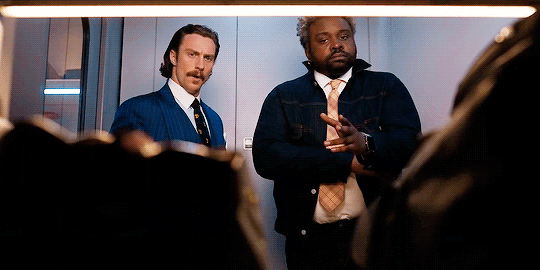
The two idle ritters
Although Pitt is the ostensible protagonist, Aaron Taylor-Johnson and Brian Tyree Henry look a bit like the assassins of the Tarot Novel. The latter find the delicate balance between the smug and very entertaining roles. Their sibling relationship – joked about because one of them is white and the other black – and one character’s obsession with a children’s TV show that strongly contradicts the film’s R-rated content could easily make the duo unbearable, but the difficult their situation, as well as the sincere commitment with which both actors put their all into these two simple, familiar and naive roles, highlight their performances. Tangerine and Lemon start like side characters from an early 2000s mob movie but eventually become basically the main characters of the film. Of course, it’s not that Pitt is bad – he’s primarily fun as the assassin working on his idea, who wants out but just can’t get away. However, there are a few moments where his character’s “joking” is somewhat forced, such as when another assassin is writhing in his last bloody moments, and he half-heartedly asks if he would like a glass of water as a last request.
A “self-satisfied” film
Bullet Train is mostly very pleased with itself, although it rarely has anything to be proud of. Like the train on which it mostly takes place, the film speeds through the not-so-original plot and only slows down when the train stops. Leitch keeps the tone light and casual, which sometimes works to the film’s detriment when the action is a little too grim and gory to match this relaxed, laid-back, fun-loving style. Considering the majority of modern mainstream films, Bullet Train is only moderately “revolutionary”, a presumably big-budget action film that at least isn’t forced into boring superheroes, extended universes, or similar, nowadays “trendy” panels. Unfortunately, that alone isn’t enough to prevent Bullet Train from being a shallow, mildly entertaining action movie that is too reminiscent of other, often much better, movies.
-BadSector-
Bullet Train
Direction
Acting
Story
Visuals/action
Ambiance
FAIR
Bullet Train is mostly very pleased with itself, although it rarely has anything to be proud of. Like the train on which it mostly takes place, the film speeds through the not-so-original plot and only slows down when the train stops. Leitch keeps the tone light and casual, which sometimes works to the film's detriment when the action is a little too grim and gory to match this relaxed, laid-back, fun-loving style. Considering the majority of modern mainstream films, Bullet Train is only moderately "revolutionary", a presumably big-budget action film that at least isn't forced into boring superheroes, extended universes, or similar, nowadays "trendy" panels. Unfortunately, that alone isn't enough to prevent Bullet Train from being a shallow, mildly entertaining action movie that is too reminiscent of other, often much better, movies.

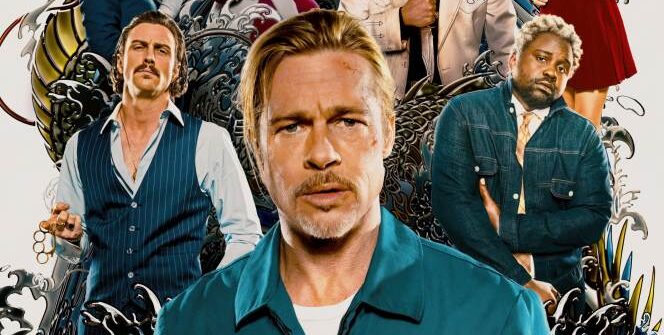
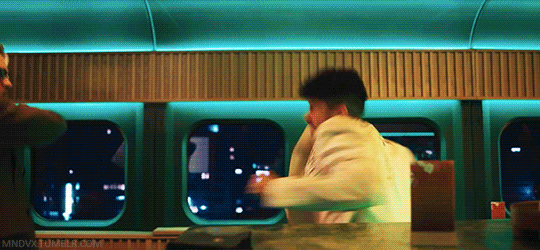
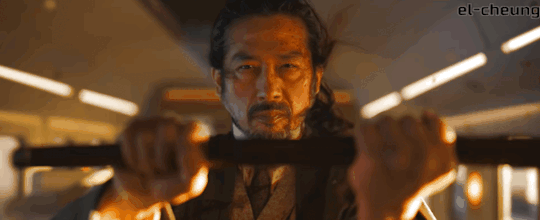
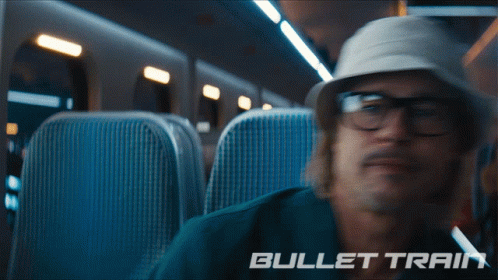



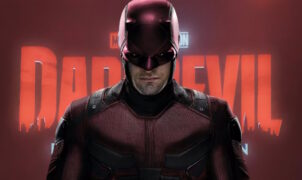






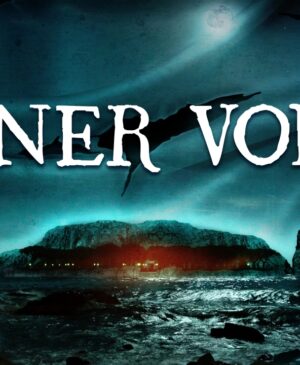
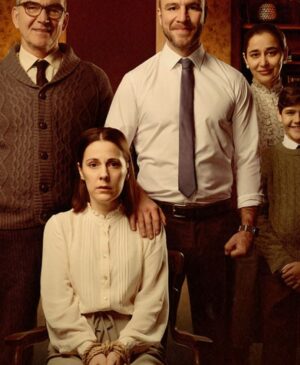
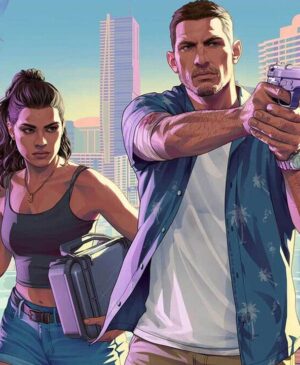
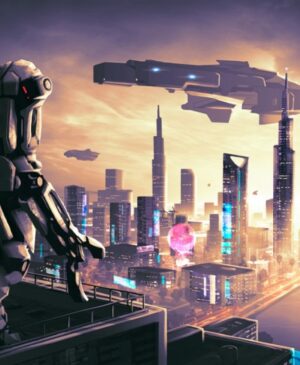
Leave a Reply